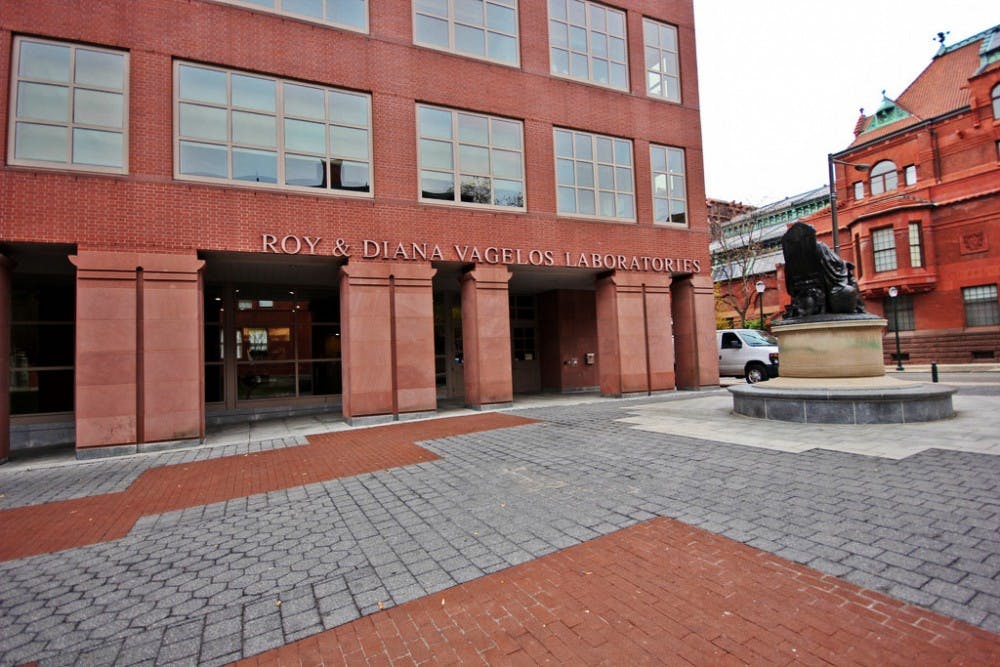Any academic program with a 77 percent dropout rate would likely be considered a failure. But most alumni of the Roy and Diana Vagelos Scholars Program in Molecular Life Sciences — even those who transferred out of the program — still consider it a success.
Penn boasts a plethora of activities and programs that can elicit a response of “you’re crazy!” from fellow classmates. But the MLS program ranks high on the list of awe-inducing activities. With an average dropout rate of 77 percent in the last 11 years, as previously reported by The Daily Pennsylvanian, MLS is easy to characterize by a snap judgment as a program effective in rooting out the weak.
But while MLS graduates may have experienced a survival of the fittest of sorts, they emphasized in interviews with the DP that even completing the first year of the program is a notable feat in itself. They added that the dropout rate is often indicative of the program’s unique acceptance policy — where Penn invites students from the top 20 percent of the incoming freshman class who have indicated an interest in the natural sciences — not of any failure or lacking on the part of the students who choose not to follow through.
“We don’t just kick them out and laugh at them,” Ben Wieder, an 2009 MLS alumnus and current PhD candidate in Physics at Penn, said of MLS dropouts.
If the student chooses to take the MLS path, he will complete two natural science majors or submatriculate with one natural science major in four years. This is on top of completing at least two summers of research and fulfilling all of the standard College requirements.
“No matter what state you are in you always feel very overwhelmed, but in a healthy way,” Cyndi Chung, 2010 MLS graduate and current Penn MD/MBA candidate, said of the workload. She completed the Vagelos program on top of an additional English major, while participating in various activities including writing a column and designing at the DP.
Chung wasn’t the only one who was able to branch out of the sciences outside of class. Wieder fenced on both the Penn and U.S. Junior National teams, travelling every weekend of the second half of his sophomore year around the world. When his grades slipped as a result of his busy schedule, MLS advisor Ponzy Lu dished out some tough love. Lu said he warns students with lower grades that they are at the bottom of the pool.
“When you tell people that, they tend to do much better,” Lu explained. For Wieder, his academic performance improved.
“Even when I was messing up, I was learning how to be a good graduate student,” Wieder said. He said he learned how to work “smart” instead of “work hard,” which allowed him to balance his intense academic and athletic schedules. He credits the somewhat rigid structure of the Vagelos program for making it easier for him to schedule his classes around practices.
For Chung, adding time-consuming activities and an extra major to her curriculum wasn’t just a resume-booster — it was imperative to her success.
“I think it was necessary,” she said. “I don’t think I would have made it out and be the same human being without it.” Still, she clarified, if it came down to it, it was clear to her that science would be the thing that stuck. “I never thought of replacing Vagelos, just adding to Vagelos,” she said.
Eileen Moison, on the other hand, was not as content with the science and research-intensive program. The 2012 College and Wharton graduate found herself more interested in the business side and direct applications of science that she read about in articles during her time in MLS. She decided to apply as a transfer student to the Life Sciences Management program for her sophomore year.
“I didn’t find the workload overwhelming,” Moison explained of her transfer. “Mostly that it just didn’t serve my interests.”
The LSM program has an application process that can be submitted along with a student’s application to Penn, contrasting from the MLS program’s invitation upon acceptance. This likely contributes to the LSM program’s relatively small dropout rate of 13 percent, as previously reported by the DP.
“It’s very much an invitation,” Sumeet Khetarpal, 2010 MLS graduate and current MD/PhD student at Penn, said of the MLS process. “The ball is in the student’s court to try it out.”
The Vagelos alumni argued that the numbers are irrelevant to the program’s success.
“I think that attrition rates are rarely a good metric for evaluating how good any program is,” Khetarpal said. “Attrition is natural. It’s inherent that people’s interests change.”
Moison believes that Vagelos should be judged by success, not statistics.
“If grads are graduating and not being able to do what they want to do with their degrees, then that says a lot about a program,” she said, noting that this is a problem Vagelos does not seem to have. She was a Gates Scholar at Cambridge and is pursuing her PhD in Chemistry at Harvard.
Roy Vagelos, the 1950 College alumnus who created and funds the Vagelos programs, is also unconcerned with the dropout rate.
“I suppose it would look better if fewer students left the program,” Vagelos said. “But that’s a matter of how you look at it.”



